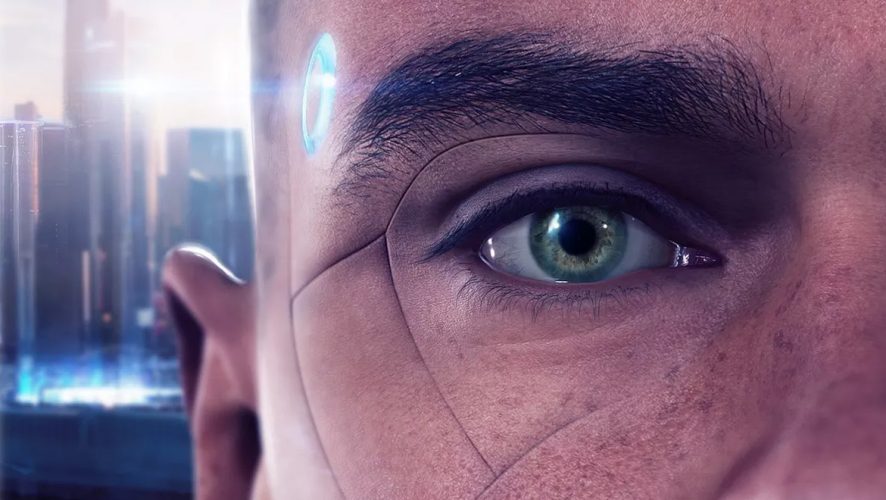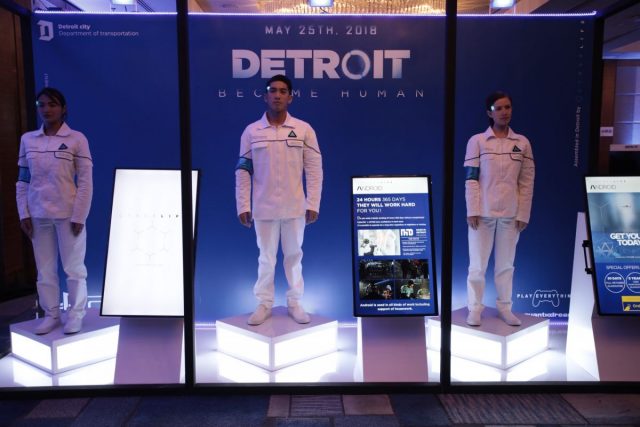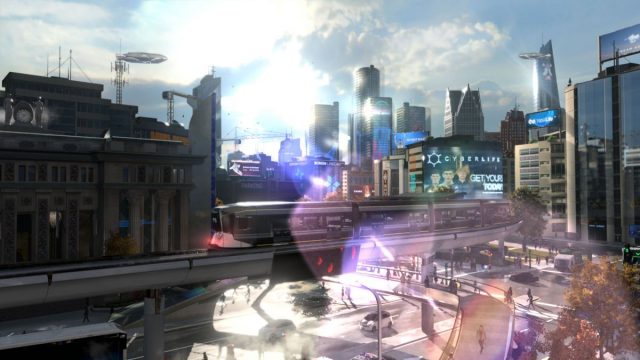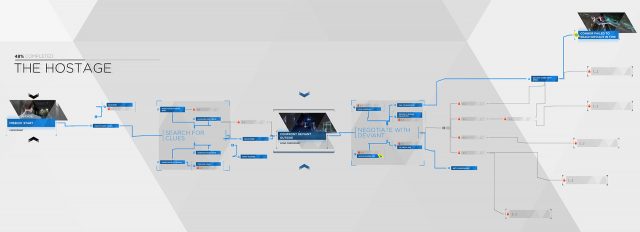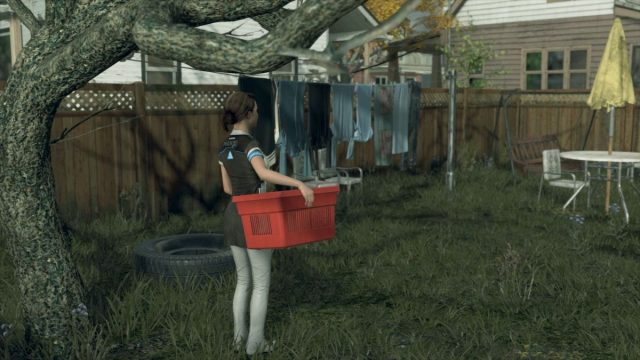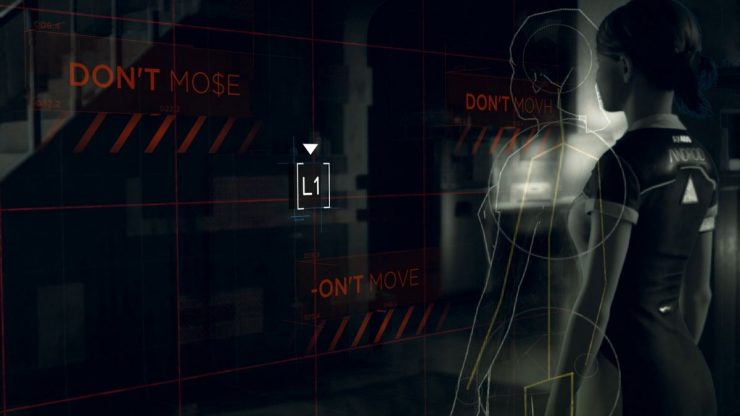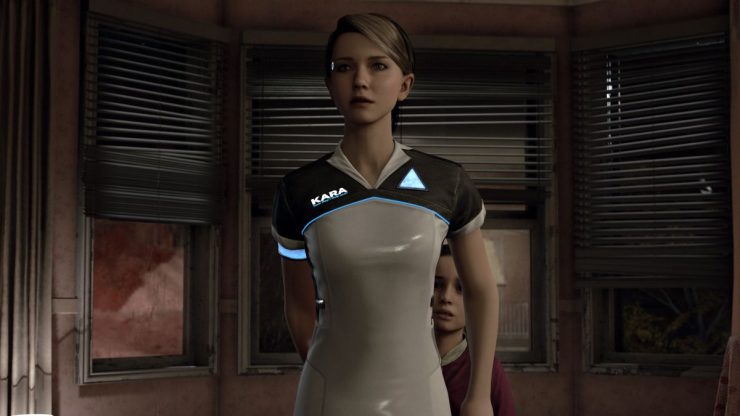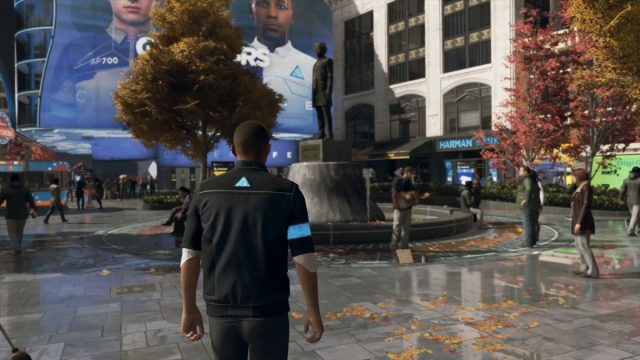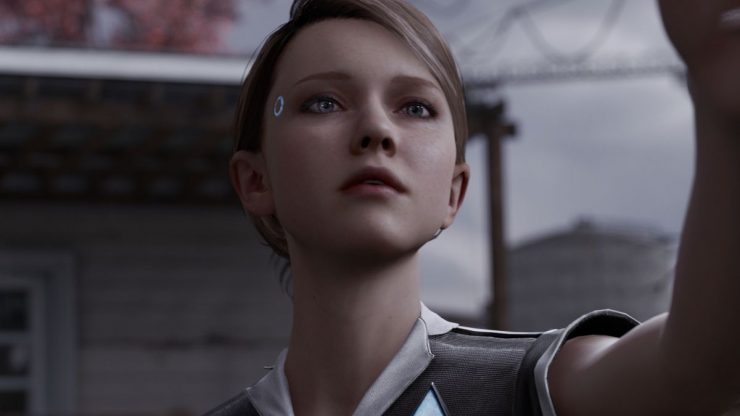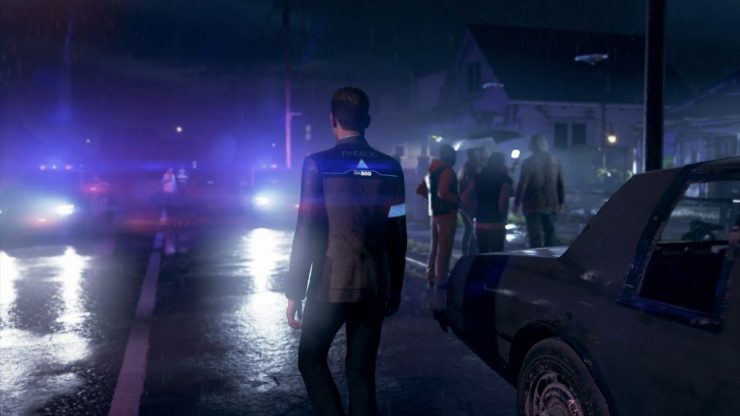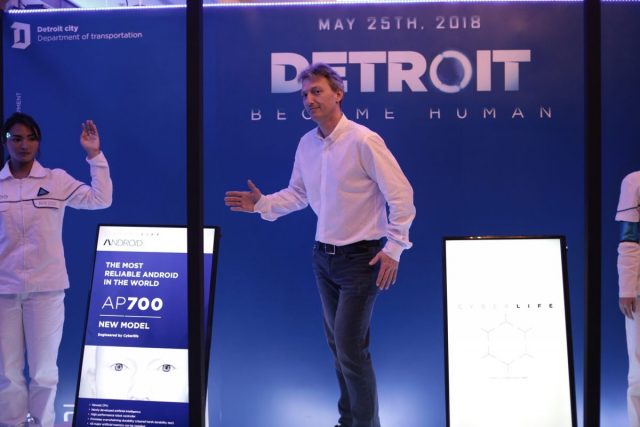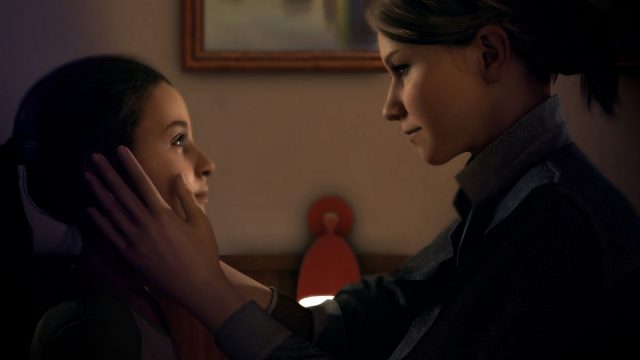Dystopian future 30 years from now, check.
Huge corporation manufacturing androids, check.
Androids turning against their human owners, check.
These ideas can be used to describe any of the futuristic robot stories that audiences are so familiar with, from Terminator, Blade Runner, to I,Robot, and the list goes on. You may say that it is an overused trope, but it still continues to intrigue.
And Detroit: Become Human is no different, as it attempts to use the familiar to tell a new story. The only difference is you, the player, now makes the choices.
Set in the city of Detroit in the year 2038, the game centers around three androids – Kara, Markus and Connor, each with its own personality and story. Kara plays the role of a home caretaker, while Markus is a personal assistant, and Connor is a prototype detective.
We had the chance to sit down with Executive Producer and co-CEO of Quantic Dream, Guillaume de Fondaumière, and when asked why the company continues to craft such story-driven narratives, he explained that with “a setting with a lot of choices involved”, it “was to a certain degree, the perfect context to create an interactive drama.” After all, this is not the company’s first attempt at such a choice-driven experience, having launched solid titles including Heavy Rain and Beyond: Two Souls.
The concept of choice is core to Detroit, with the player’s every decision having a consequence, both in the present and in the overarching story. The narrative is driven “scene-by-scene”, rotating between playing as each of the three characters. Each scene has up to 6 different endings, with each one having its own ripple effect down the line. More than just a branching option that spurs players to replay the game, it’s a gameplay feature that produces unique experiences for each individual.
This was very apparent during our playthrough, where we only managed to complete up to 50% of each scene, as indicated in the progress bar. Unfortunately, we were unable to get an impression of how the scenes played so far would affect the overall plot.
The game starts off with putting players in the shoes of the androids carrying out very mundane tasks, such as picking up the groceries and doing household chores. This serves as an intuitive way to get players familiar with the varieties of controls the game has, as it takes full advantage of the Dualshock 4 with its touchpad.
It also serves to humanise these androids, letting players instantly have a connection and understand their underlying motivations and characteristics.
Out of the three androids, Markus has the strongest character motivation, with a clear reason how he became the resistance leader that he would eventually be.
There is not much to be said about Connor, due to the fact that he was programmed from the start to be a detective android, and the game just plays out that way.
The story beginnings of Kara, however, felt a little forced; a freshly rebooted android suddenly going against her owner’s orders and being protective of a child she technically does not know.
Of course, this is not indicative of the entire game, and we most certainly hope to have a better understanding of their entire arcs and development as the game plays on.
As with most Quantic Dream games, there is the possibility that the three storylines would eventually converge. Roles can change, characters will die, it all depends on the choices you make.
For the playthrough with Connor and the hostage situation (as shown previously), my decisions ultimately led to Connor jumping off the roof of the building, together with a deviant android.
However, it might appear death may not be permanent for the main androids. I was soon in the shoes of Connor again further into the game. How the deaths and decisions will pan out is still something we have to discover when the game is finally released, as it was mentioned that you could finish the game with all three characters alive, or with all three decommissioned.
Within each scene there is always much to explore; be it the city, a house, a crime scene etc. While Connor is used to achieve story objectives, exploring the world as Kara and Markus rewards you with little tidbits of information on the the in-game world, as well as clues to help you in the decision making process when the time comes. It rewards curiosity, and often does a good job of environmental storytelling.
Alongside the traditional third-person angle, the option to toggle between 3 different camera angles also helps to give new perspectives in each scene. The visuals and camera work give the game a cinematic feel, courtesy of Director of Photography, Aymeric Montouchet.
According to de Fondaumière, Montouchet created a different look for each character, using “thick grain and shaky long lens” with shallow depth of field for Kara; “very small, tight grain” and a blue palette for Connor; and orange and white colours for Markus. It definitely did its job in marking our main characters as more than just another android.
This collaboration delivered beautiful cinematography and a distinct feel when playing each character. However, due to the free roaming camera, sometimes you would find yourself being stuck with an awkward view of the back of your android’s head. This is more apparent when maneuvering in tight spaces.
With the controversy surrounding the issue of domestic abuse came up with the teaser trailer at Paris Games Week 2017, de Fondaumière was quick to rebut that Quantic Dream was not shy to touch on certain themes that were socially relevant, although the challenge was to treat them with the right sensitivity and mindset. The game also touches on the consequences of androids on the economy, which led to major unemployment and dissent among the human population. These themes are especially relevant in today’s world, where there is rising anxiety with the issues of unemployment, gun control and abuse.
“Our purpose as creators, is to ask questions, and we give the players to the possibility to answer these questions, and put their own values in weight and make those decisions. I certainly hope most players are going to fight against it (domestic abuse).”
With choice and decision making key to Detroit: Become Human, de Fondaumière mentioned that a single playthrough could take up to 20 hours, which can go longer if players want to obtain the multiple endings.
The need for exploration and decision-making mechanic might slow down the pace of the game, but it allows players to be immersed in the world of future Detroit, and also contemplate on the choices made, instead of just mashing buttons. This, combined with the themes that the game aims to touch on, drives a compelling narrative.
With the successful release of the latest God of War, it is apparent that narrative-based games are not dead (Take that EA), and the road to a successful game is still a well-written script, creative gameplay and amazing visuals. While Detroit: Become Human is shaping up quite well to fulfill those aspirations, we will still have to wait for its May 25th release to know for sure.
To tide players through the month-long wait, Quantic Dream has released a demo on the Playstation Store, allowing players to playthrough the “Hostage” scene as Connor. It would be available for download on April 24th 1200hrs EST (SGT 25th April 0000hrs).

